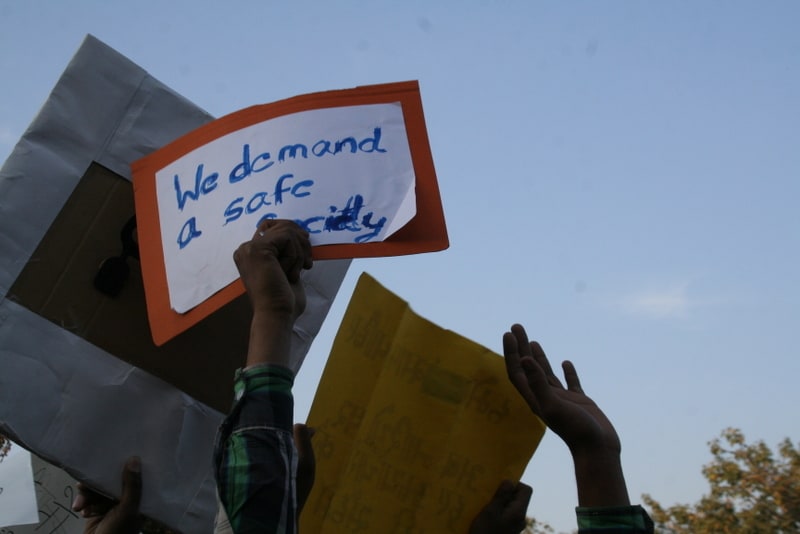New ICMR guidelines says no test needed for asymptomatic contacts
According to new protocols announced on January 14th, the health ministry has said that asymptomatic contacts of those who test positive for COVID-19 need not get tested unless identified as “high-risk individuals” based on age or co-morbidities. Additionally, those who complete seven days of home isolation need not get re-tested if the fever does not persist beyond three days.
Earlier this month, the Centre had reduced home isolation from 14 to 7 days for those categorised as ‘mild’ or ‘asymptomatic’ patients. However, for those above the age of 60 and/or living with comorbidities, home isolation is allowed only after consultation with a doctor.
Source: The Times of India
National capital’s air quality deteriorates to ‘very poor’ category
Delhi recorded an Air Quality Index (AQI) of 339 on the morning of January 15th, moving it’s air quality to ‘very poor’ category. According to the System of Air Quality and Weather Forecasting And Research (SAFAR), amid foggy conditions, the city’s humidity stood at 93%, making pollutants heavier, and dispersion difficult.
January 14th was the “longest foggy day of the season” according to the Indian Meteorological Department (IMD). An official claimed that a layer of dense fog over Delhi-NCR, Punjab, Haryana, west Uttar Pradesh and north Rajasthan prevented sunlight from reaching the surface.
Source: Hindustan Times
Read more: Will 2022 bridge the yawning gaps in national and state level clean air action?
Centre’s stance unchanged on criminalisation of marital rape
The Union government has informed the Delhi High Court that it cannot criminalise marital rape until talks between the Centre and all stakeholders are complete. In response to petitions, the Centre submitted a fresh affidavit on January 13th, maintaining that it is examining the issue of changes in criminal law in the country. “Principles of natural justice require larger hearing of all stakeholders,” the government said.
Additionally, it said that suggestions have been invited from chief ministers of all state governments, and from Union territories, the Chief Justice of India, chief justices of all high courts, judicial academies, national law universities, Bar Council of India, Bar Council of all high courts and members of both Houses of Parliament.
Currently, Section 375 of the Indian Penal Code exempts forceful sexual intercourse by a man with his own wife from the offence of rape.
Source: Hindustan Times

Private job quota law in Haryana to take effect from January 15th
Taking effect from January 15th, a new law by the Haryana government will implement 75% reservation for local youth in private sector jobs that offer a salary of less than ₹30,000 a month. Titled Haryana State Employment of Local Candidates Bill of November 5, 2020, the law will be applicable for 10 years.
To confirm eligibility for registration on a designated portal of the Haryana Labour Department, candidates require a family identity card, the Parivar Pehchan Patra. The state government also altered residency requirement from 15 to 5 years for a person to get a bona fide resident certificate.
“Private sector hiring comes to a halt from January 15, the date of commencement of this Act,” said an official. “Now every employer in the state will first have to register employees receiving gross monthly salary or wages not more than ₹30,000 on the designated portal within three months of coming into force of this Act. No person shall be employed or engaged by any employer till the registration of all such employees is completed on the designated portal”.
Other states too are considering similar laws to reserve jobs in the private sector for local residents.
Source: Hindustan Times
Read more: Empower and fund local bodies to make urban employment guarantee work: Experts
Union budget 2022: Strict COVID-19 precautions for Parliament session
The Union budget session for 2022-23 will commence on January 31st with the president’s address to both houses followed by the presentation of the union budget the next day. The fist part of the budget session will be from January 31st till February 11th, and the second part from March 14th till April 8th.
Concerns over the peak of the third wave of COVID-19 shadow the impending sessions. About 700 Parliament staff had tested positive since January 4th. “These include 204 people in the Rajya Sabha Secretariat. Rest of the cases were reported from the Lok Sabha Secretariat and allied services,” sources said.
If numbers do not come down, restrictions similar to the monsoon session of 2020 may be imposed. All MPs will have to produce double vaccination certificates to be able to attend.
Source: News18, Indian Express
Compiled by Saachi D’Souza